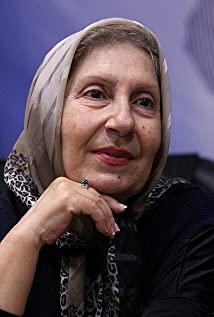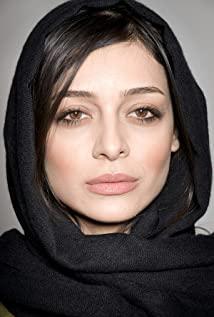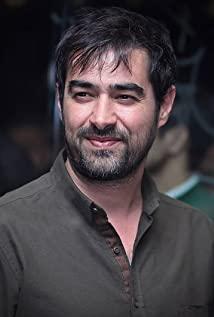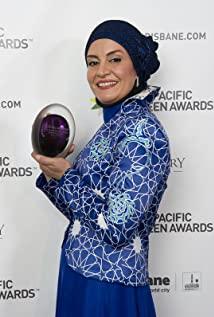"A Separation", like China's "Long Time", both won the best actor and actress at the Berlin Film Festival at the same time. They are also family films, and both won the awards ceremony. It is a pity to see this in 2021 An excellent Iranian film.
The English name of the film is "A Seperation", and the Chinese translation is "A Separation". At first, I thought it was not good, inappropriate, and too light. Using "A Seperation" to express the social outlook and cultural environment of the whole of Iran inevitably makes people feel that I can't bear it, but I think about it, the name is very good, but it also highlights the heavy feeling in it.
Such an Iranian realistic film revolves around a conflict to show the conflict between Iranian capitalism and religious beliefs, the middle class and the poor. There is no absolute justice and evil, everyone has their own difficulties and reasons.
About a farewell I saw:
1. The separation of father's love and mother's love:
The unhappiness and dissatisfaction of modern marriages have become a social phenomenon, and children have become victims of adults' divorce. In the process of growing up, children most need the company and care of their parents to accompany them to grow up. Parents are the greatest sense of security for children.
2. The separation of the upper class and the common people:
In the movie, Grandma and Teme said when reviewing historical knowledge outside the courtroom, "During the Sassanid period, people were divided into two classes, the upper privileged class and the common people", and Grandma deliberately emphasized "the common people". In Iran, social hierarchies have always existed, just like the two families in the film, the Nader and the Westminsters, who represent the bourgeoisie, and the Ryzes, the maid, who represent ordinary people. In court scenes, we can clearly see that the rich have the right to speak and the judge's favor. The judge is partial to the bourgeoisie in the right to speak. Even the female teacher who was invited to testify helped the Nader family, even if she is lying.
The irony in the movie is that the more educated people are, the easier it is to lie, while the less educated people at the bottom of the society are more sincere, and the court obviously believes more in the quality of educated people. Morality and law, honesty and lies are swaying like fluff in the wind, which is also the focus of this accidental film. Who is lying? What is the truth?
Three: The Separation of Faith and Reality
Iran is a theocracy with the unity of state and religion, a special existence. Islam is supreme and unquestionable in Iran, and even the law is nothing compared to a Koran.
In Iran in the past, religious beliefs restricted people's behavior. People abide by their beliefs, have their own inner moral standards and code of conduct, and regard religion as a yardstick to measure their character. As shown in the movie, Maid Reitz does a lot of things with consideration for religious beliefs. When Nader's father wet his pants, Reitz first called to ask if he would be punished for touching his faith if he changed his father's pants. Inner condemnation and torture, fear of retribution for lying, but after many struggles, she chose to tell the truth. She kept her beliefs, but because of her beliefs, her family was fragmented and in trouble in reality.
Maid Reitz has always used religious beliefs as a standard to act, she is a symbol of Iranian religious civilization. On the other hand, Nader, who has received modern cultural education, is open-minded, and is a representative of the elite. He is quick-witted, rational and eloquent. In order to prove his innocence, he even lied that he did not know that Reitz was pregnant. He did not believe in the religious beliefs deeply imprinted in Reitz's heart. As a modern civilized judicial institution, the court is more based on evidence than morality. It seems that in the current Iranian society, the more educated a person is, the less they believe in religious beliefs. What they deeply believe in is facts, evidence, money, and resources, which are their principles of life. The different values and working principles of the two represent the separation of Iranian social religious beliefs and modern civilization, reflecting the conflict between beliefs and civilizations, which also makes the Iranian people fall into greater confusion and predicament: when the teachings of the Koran and the reality When life disagrees, do you choose to accept the reality and silently endure the inner condemnation? Or stick to your beliefs and watch real life spiral out of control in front of your eyes? Should we stick to our religious beliefs and morals, or should we completely abandon our beliefs and fully embrace modern civilization and laws? Religious belief can not redeem real life, and the law can achieve true fairness and justice?
And these, it seems that no one can give the Iranians a clear answer. Religious belief and modern civilization are intertwined and embedded in each other, which constitutes a double ideological influence and infiltration on the Iranian people, and also makes the people feel confused and confused. How to find a balance between Iran's religious beliefs and civilization construction, and how to achieve relative compromise and unity amid opposition and fragmentation, is the fog and dilemma that Iranian society needs to keep exploring to overcome.
The two children in the movie are symbols of purity. The eye contact between Temei and Reitz's youngest daughter, from friendly to slightly hostile at the end, hit my heart. The two children are observing the adults from their own perspectives from beginning to end. The world, watching this society, this country, watching all kinds of conflicts, even innocent people fell into dark contradictions. Class contradictions and class solidification have not been resolved, and social separation has also taken root in the hearts of the two children. Children are the hope of the country's future. Where should the Temei generation go? I'm very curious what the final daughter of the movie, Teme, will say in front of the lawyer, the truth? Nader could go to jail, the family is doomed, who will take care of the sick father? Reitz guilty? The judgment of the law is undoubtedly another shackle of this miserable family, and the youngest daughter follows the unemployed father? Bloody reality, endless questions. Anxious couples in the hallway, people in dire straits in Iran, and anxiously in front of the screen we are all waiting for answers to our problems.
View more about A Separation reviews











